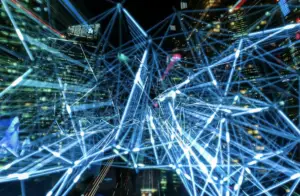
Although artificial intelligence (AI) technology has been widely touted as a ‘game-changer’ in many industries, we are yet to truly see its full-blown capabilities.
For example, several tech wizards have attempted to use AI for blackjack. As popularised by successful movies such as Rain Man and 21, players can use various playing strategies whilst playing blackjack at the casino.
The same ethos can undoubtedly be applied to movie making, although the use of AI does spark some sizeable creative concerns within the film industry.
Supporters of AI argue it has transformed content creation, but critics counter that suggestion by claiming its utilisation is an insult to the creative process.
As with many debates of this nature, the truth lies somewhere in middle – a place where the people who inhabit the extremities of the movie business are not overly familiar with.
One of the primary benefits of AI is its ability to support more efficient scriptwriting processes, with the various tools able to decipher massive amounts of information.
By learning from successful movies to understand audience preferences, AI can make informed suggestions to enhance the narrative in new movies.
Filmmakers can target content to specific audience segments, creating a more personalised experience and helping to keep them more invested in the story.

Graphic tools driven by AI capabilities are also transforming how scenes are visualised by making recommendations to fit with the script’s emotional tonality.
This creates the possibility that outcomes of important scenes such as car chases, casino scenes and bar brawls are different from what was originally envisioned by the filmmaker.
AI really comes into its own is during the editing process, particularly when it comes to making significant changes after scenes have been filmed.
Reassembling the cast after shooting has finished is hugely impractical, and making big changes to the content is not always feasible through traditional editing process.
Incorporating AI algorithms into graphic tools allows for greater changes to be made during editing, thus making this element far more cost-effective than other alternatives.
It could be argued that this actually provides more creative flexibility to filmmakers during editing, giving them more chance to express themselves after filming has ended.
AI allows for live-action content to be blended with virtual settings, thus increasing the overall efficiency of the overall editing process.
Real-time rendering allows for the immediate visualisation of edits, which removes many of the issues relating to the way movies were previously rendered.
Creative teams can utilise the technology to collaborate more efficiently, thereby speeding up the overall editing process and reducing budgetary costs.
Post-filming experimentation is much more feasible through the power of AI, allowing filmmakers to maximise the impact of each scene in a movie.
While traditionalists argue AI takes a significant portion of the ‘human touch’ out of filmmaking, its capacity for exploration actually creates a landscape for even greater creativity.
In a sector where the aphorism ‘time is money’ is unquestionably applicable, the utilisation of AI can only be viewed as a positive thing.
Its ability to make filmmaking processes more efficient and change outcomes in movies is guaranteed to keep driving the industry to new heights over the next decade and beyond.

